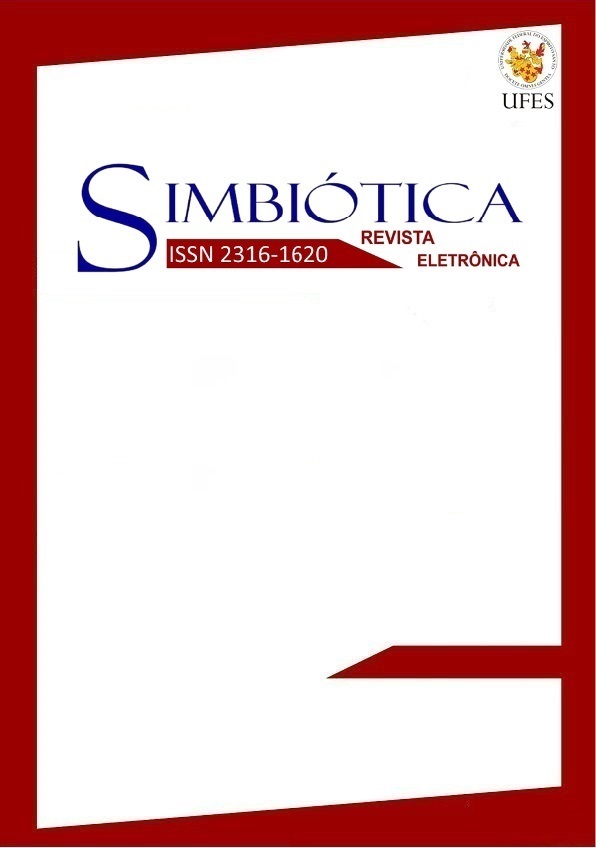Relaciones entre el pensamiento complejo y los sistemas complejos adaptativos
DOI:
https://doi.org/10.47456/simbitica.v8i1.35431Resumo
El artículo tiene como objetivo contribuir al establecimiento de puentes entre el pensamiento complejo y los sistemas complejos adaptativos con la finalidad de enriquecer los marcos teóricos y abordajes de los trabajos vinculados a la complejidad. De la revisión se concluye que, aunque el pensamiento complejo y los sistemas complejos adaptativos mantienen diferencias y especificidades, en gran medida se observa una alta compatibilidad por nutrirse de fuentes comunes. Las tensiones, aún vigentes, que los sistemas complejos son más científicos por emplear métodos científicos y que el pensamiento complejo es más filosófico con su método para pensar gradualmente, se vienen diluyendo y, por el contrario, las voces que demandan su integración son cada vez más necesarias y urgentes.
Palabras clave: Caos; Conocimiento; Epistemología; Filosofía.
Abstract
The aim of the article is to contribute to the establishment of bridges between Complex Thinking and Complex Adaptive Systems with the aim of enriching the theoretical frameworks and approaches to work related to complexity. From the review we conclude that, although complex thinking and complex adaptive systems maintain differences and specificities, to a great extent a high compatibility is observed because they are nourished by common sources. The tensions, which are still present, that complex systems are more scientific because they use scientific methods and that complex thinking is more philosophical with its method of thinking are gradually being diluted and, on the contrary, the voices that demand their integration are increasingly necessary and urgent.
Keywords: Chaos, knowledge, epistemology, philosophy.
Resumo
O objetivo do artigo é contribuir para o estabelecimento de pontes entre o pensamento complexo e os sistemas adaptativos complexos com o objetivo de enriquecer as estruturas teóricas e as abordagens de trabalho relacionadas à complexidade. Da revisão concluímos que, embora o pensamento complexo e os sistemas adaptativos complexos mantenham diferenças e especificidades, em grande medida se observa uma alta compatibilidade, pois eles são alimentados por fontes comuns. As tensões, ainda presentes, que os sistemas complexos são mais científicos porque utilizam métodos científicos e que o pensamento complexo é mais filosófico com seu método de pensamento estão sendo gradualmente diluídos e, ao contrário, as vozes que exigem sua integração são cada vez mais necessárias e urgentes.
Palavras-chave: caos, conhecimento, epistemologia, filosofia.
Downloads
Publicado
Edição
Seção
Licença
Copyright (c) 2021 Rodrigo Severo Arce Rojas

Este trabalho está licenciado sob uma licença Creative Commons Attribution-NonCommercial 4.0 International License.
Autores que publicam nesta revista concordam com os seguintes termos:
a. Autores mantém os direitos autorais e concedem à revista o direito de primeira publicação, com o trabalho simultaneamente licenciado sob a Creative Commons - Atribuição-NãoComercial 4.0 Internacional.
b. Compartilhar - copiar e distribuir o material em qualquer meio ou formato.
Adaptar - remix, transformar e construir sobre o material para qualquer finalidade, inclusive comercial.
c. Autores têm autorização para assumir contratos adicionais separadamente, para distribuição não-exclusiva da versão do trabalho publicada nesta revista (ex.: publicar em repositório institucional ou como capítulo de livro), com reconhecimento de autoria e publicação inicial nesta revista.
d. Autores têm permissão e são estimulados a publicar e distribuir seu trabalho online (ex.: em repositórios institucionais ou na sua página pessoal) a qualquer ponto antes ou durante o processo editorial, já que isso pode gerar alterações produtivas, bem como aumentar o impacto e a citação do trabalho publicado (Veja O Efeito do Acesso Livre).
Authors who publish in this journal agree to the following terms:
a. Authors retain the copyright and grant the magazine the right of first publication, with work simultaneously licensed under the CCreative Commons - Atribuição-NãoComercial 4.0 Internacional.
b. Share - copy and distribute the material in any medium or format.
Adapt - remix, transform and build on the material for any purpose, including commercial.
c. Authors are authorized to take additional contracts separately, for non-exclusive distribution of the version of the work published in this journal (eg, publish in institutional repository or as a book chapter), with acknowledgment of authorship and initial publication in this journal.
d. Authors are allowed and encouraged to publish and distribute their work online (eg.: in institutional repositories or on their personal page) at any point before or during the editorial process, as this can generate productive changes as well as increase the impact and the citation of the published work (See The Effect of Free Access).












